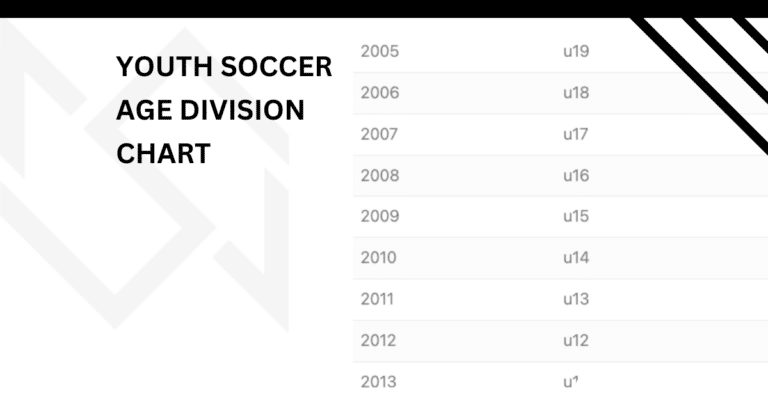What Does the Captain Do in Soccer?

The captain is an essential player on the soccer team, responsible for leading and directing their teammates throughout the game.
They are typically leaders on and off the field, the central communicator with refs, and lifts teams in moments of challenges.
In this article, we’ll explore the role of the captain in soccer and what makes them so crucial to their team’s success.
Role of a Soccer Captain
Leadership Responsibilities
As the captain of a soccer team, you have a significant leadership role. You are responsible for setting an example for your teammates, both on and off the field. You should always conduct yourself in a professional manner and treat your teammates with ultimate respect. In turn, your teammates will look up to you to lead them.

Your leadership responsibilities include motivating your teammates, ensuring that everyone is working together towards a common goal, and helping to resolve any conflicts that may arise.
You should also be a positive influence on the team and encourage your teammates to give their best effort.
Communication Duties
As the captain, you are also responsible for communication duties. You should be the main point of contact between your team and the referee, and you should be able to communicate effectively with your teammates during the game. This includes both verbal and nonverbal communication.
You should also be able to communicate with your coach effectively. This means relaying important information about the game, such as injuries or substitutions, and providing feedback on the team’s performance.
In youth soccer, texts and emails can get lost. As a captain, it’s partly your job to let your teammates know about upcoming games and any time changes in the practice schedule.
Role of a Captain in Games
During the game, you have several duties as the captain. You will be meeting the ref at the mid-line and listening to any important points he or she may have. It’s your job to relay this info to your coach and teammates.
During the game, you should be able to read the game and make strategic decisions based on what is happening on the field. This includes making tactical changes and adjusting your team’s formation as needed.
You should also be able to lead by example on the field. This means playing to the best of your ability and setting the tone for your teammates. You should be a role model for your team and inspire them to give their best effort.
The Captain’s Armband
In professional games (and some youth games), one way that the captain is easily identified is by the captain’s armband that they wear on their arm during the game.
The captain’s armband is a symbol of leadership and responsibility. It is typically worn on the left arm and is often a different color than the team’s uniform. The armband is usually made of elastic material and is designed to fit snugly around the player’s arm.
Wearing the captain’s armband is a great honor for any player. It signifies that they have earned the respect of their teammates and coaches and have demonstrated strong leadership qualities.
If the captain is substituted or sent off during the game, the armband is typically passed to another player who will take on the role of captain for the remainder of the game.
Choosing a Soccer Captain
Choosing the right captain for your soccer team is crucial to the success of your team. The captain is the leader of the team, and they are responsible for setting the tone for the team both on and off the field. Here are some factors to consider when choosing a soccer captain:
Leadership Skills
The captain should be a natural leader who can inspire and motivate their teammates. They should be able to communicate effectively with their teammates and lead by example.
Look for players who are respected by their teammates, have a positive attitude, and are able to bring out the best in others.
Experience
The captain should have experience playing soccer at a high level. They should have a good understanding of the game and be able to make quick decisions on the field.
Look for players who have played in important games and who have a track record of success.
Attitude
The captain should have a positive attitude and be able to keep their teammates focused and motivated. They should be able to handle pressure and remain calm in difficult situations.
Look for players who are confident, but also humble and willing to work hard for the team.
Responsibility
The captain should be responsible and reliable. They should be able to show up to practices and games on time and be prepared to play.
Look for players who take their role on the team seriously and who are committed to the success of the team.
Soccer Captain’s Influence on Team Morale
As a soccer captain, you have a significant impact on your team’s morale.
Your leadership skills, attitude, and behavior can either motivate or demotivate your teammates. Here are some ways in which you can positively influence team morale:
Lead by Example
Your actions speak louder than words, so it’s essential to lead by example. Show up to practice and games on time, work hard, and give it your all. When your teammates see your dedication and effort, they will be more likely to follow suit.
Encourage and Motivate
As a captain, you have the power to encourage and motivate your teammates. During games, give positive feedback and praise when they perform well. When your team is struggling, use your words to encourage them to keep going and never give up.
If the team is dejected after a bad loss, the captain may want to send a group text to encourage the team to keep their head up and put things into perspective – “We have 8 more games, this is just one of many. Let’s bounce back next game!”
Communicate Effectively
Communication is key in soccer, and as the captain, it’s your responsibility to ensure that everyone is on the same page.
Make sure to communicate effectively with your teammates on and off the field. Listen to their concerns, provide feedback, and keep them informed of any changes.
Foster a Positive Environment
Creating a positive team environment can significantly impact team morale. Encourage your teammates to support each other, celebrate their successes, and learn from their mistakes.
A positive environment can help build team chemistry and lead to better performance on the field.
When the team is having fun on the field, good things often happen.
The Captain’s Role in Soccer Training Sessions
As the captain of a soccer team, you play a vital role in training sessions. You are responsible for leading by example, motivating your teammates, and ensuring that everyone is focused and working hard.
Here are some specific ways that you can contribute to successful training sessions:
Setting the Tone
As the captain, you have the ability to set the tone for the entire session. Arrive early, ready to work, and make sure your teammates know that you are taking this seriously. Your attitude and effort will be contagious, and your teammates will follow your lead.
Communicating with the Coach
During training sessions, it’s important for you to communicate with the coach. If you notice something that could be improved or have an idea for a drill, speak up. Your coach will appreciate your input and may even incorporate your ideas into the session.
Leading Warm-Ups
As the captain, you can take charge of the warm-up exercises. This is a great opportunity to get everyone focused and ready to work. Make sure you are leading by example and doing the exercises correctly. Encourage your teammates to push themselves and work hard.
Providing Feedback
During training sessions, you can provide feedback to your teammates. If someone is struggling with a particular soccer drill, offer some constructive criticism. If someone is doing well, give them a pat on the back. Your feedback can help everyone improve and stay motivated.
Motivating Your Teammates
Finally, as the captain, you are responsible for motivating your teammates. Encourage them to push themselves and work hard. Remind them of the team’s goals and how their effort in training sessions will help the team achieve those goals. Your positive attitude and encouragement can make all the difference.
Mistakes to Avoid For Soccer Captains
As a soccer captain, you are responsible for leading your team to victory. However, there are certain mistakes that you should avoid making in order to ensure that your team performs at its best. Here are some common mistakes that soccer captains make and how to avoid them:
Not Communicating Effectively
One of the most important roles of a soccer captain is to communicate effectively with their team. This means that you need to be clear and concise when giving instructions or feedback. Make sure that you use simple language that everyone can understand and avoid using jargon or technical terms that might confuse your teammates. Additionally, be sure to listen to your teammates and take their feedback into consideration.
Not Leading By Example
As a captain, you are expected to lead by example both on and off the field. This means that you need to show your teammates what it means to be a dedicated and hardworking player. Make sure that you arrive at practice and games on time, give 100% effort during drills and scrimmages, and maintain a positive attitude even when things aren’t going well.
Not Encouraging Your Teammates
Another important role of a soccer captain is to encourage and motivate their teammates. Make sure that you are constantly giving positive feedback and reinforcing good behavior. This can be as simple as giving a teammate a high-five after a good play or offering words of encouragement when they are feeling down. Remember, a little bit of positivity can go a long way in boosting team morale.
Is the Captain Always the Best Player?
It is a common misconception that the captain is always the best player on the team.
While it is true that captains are often selected based on their skills and performance on the field, being the best player is not the only requirement for the role. Captains must also possess qualities such as good sportsmanship, a positive attitude, and the ability to motivate and inspire their teammates.

In fact, some of the most successful captains in soccer history were not necessarily the most talented players. For example, Sergio Ramos, the former captain of Real Madrid and the Spanish national team, was not always considered the best player on the field, but he was known for his leadership and ability to rally his team in critical moments.
On the other hand, there have been cases where the best player on the team was not selected as the captain due to their lack of leadership skills or other factors. For instance, Lionel Messi, widely regarded as one of the greatest soccer players of all time, was not the captain of the Argentinian national team until 2011, despite his exceptional skills and performance.
So, while being the best player on the team can be a factor in selecting the captain, it is not the only criteria. Captains must possess a combination of skills, qualities, and characteristics that make them effective leaders both on and off the field.
Final Thoughts
The captain in soccer plays a crucial role in leading and organizing the team. As the team’s representative on the field, the captain communicates with the referee, motivates their teammates, and helps to maintain team discipline.
The captain’s responsibilities extend beyond the game itself. They are responsible for ensuring that the team adheres to the rules and regulations set by the league and the club.
To be an effective captain, you must possess strong leadership skills, excellent communication abilities, and a deep understanding of the game. You must be able to remain calm under pressure, make quick decisions, and motivate your teammates to perform at their best!
Frequently Asked Questions
What are the duties of a soccer captain?
As a soccer captain, your main duties include leading your team both on and off the field. You are responsible for communicating with your teammates, coaches, and referees. You should also be a role model for your team, setting an example of good sportsmanship and fair play. During games, you are responsible for leading your team’s warm-up, making sure everyone is ready to play, and making any necessary adjustments to your team’s strategy.
What does a soccer captain do?
As a soccer captain, you are the leader of your team. You should be able to motivate your teammates and keep them focused throughout the game. You are responsible for communicating with your team, making sure everyone is aware of the game plan and any changes that need to be made. During the game, you are the one who communicates with the referee, making sure your team is playing within the rules of the game.
How to be a good captain in soccer?
To be a good captain in soccer, you need to have good communication skills, be a good listener, and be able to motivate your teammates. You should also be a good role model, setting an example of good sportsmanship and fair play. During games, you should be able to keep your cool, even in high-pressure situations. You should also be willing to make tough decisions, such as deciding when to make substitutions or change your team’s strategy. Finally, you should always be willing to learn and improve your skills as a captain.

Written By: Beau Bridges
Beau is the founder of SoccerNovo, dedicated to helping players and parents navigate the youth soccer landscape. As a former youth coach and soccer parent, he shares insights on player development, recruiting, and the ever-evolving soccer scene in the U.S.
Let’s connect





